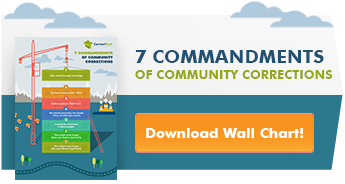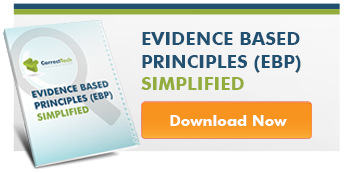This is the 6th of a 12 part series on Evidence Based Principles. Subscribe to our blog and get the series delivered right to your inbox.
Principle 3b: Collaborate on a Treatment Plan
Consider what it is like to be an offender who has been in multiple incarceration and treatment environments. In most cases, the intake process starts with a barrage of questions and then someone tells you what your problems are, what treatment is required and the total of the monthly fees required to keep you out of jail. The entire first few days is largely out of your control and your opinion is rarely asked, much less actually valued. Worse, it feels like your identity is summarized as a set of problems. That is the way you’ve felt for a long time, but it is disconcerting for a professional to reinforce the idea.
Conversely, imagine expecting the above experience and instead being pleasantly surprised when the treatment plan process begins with, “Let’s begin with what you value most; what is most important to you.” This process changes the entire interaction, the attitude and even the environment immediately, doesn’t it? Instead of beginning a “treatment plan” that is based on a history of failure and critically poor choices, you get defined by what is important to you and who you want to become. You get defined by potential rather than problems. Feeling more motivated already? That is the idea.
Read More






